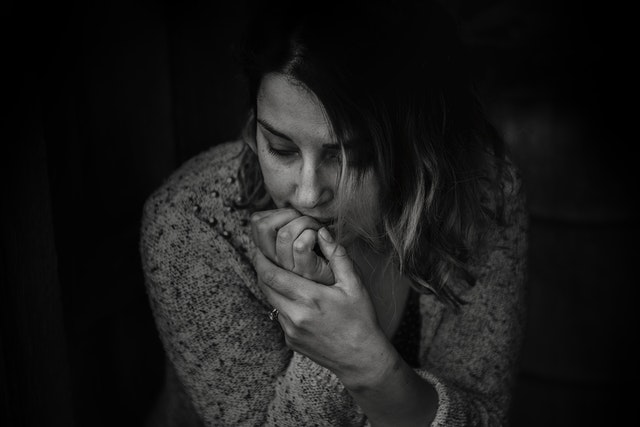A new study investigates the rates of sleep impairments and adverse mental health in COVID-19 patients.
The COVID-19 pandemic significantly impacted individuals and populations around the globe in a variety of ways. The implications on public mental health have been particularly significant, as recent studies have highlighted increased rates of anxiety disorders and depression since the onset of the pandemic.1,2 Further, research suggests that this may also have implications on an individual level, as a few studies have also outlined a potential association between adverse mental health and acute COVID-19 infection.3,4,5
Some research suggests a potential association between COVID-19 and sleep problems.6 One meta-analysis found that the rate of sleep disorders during the pandemic within the participant group was 74.8% for COVID-19 patients, 36.0% for healthcare workers, and 32.3% for the general population.7
Although more research is needed to further investigate these potential relationships and the mechanisms behind them, sleep impairments are common among patients with mental health conditions, and sleep quality could potentially influence mental health outcomes.8
Researchers wanted to investigate the combined prevalence of anxious and depressive disorders alongside sleep impairments in hospitalized COVID-19 patients. They also wanted to document the patients’ experience to gain a better understanding of how these phenomena affected them. The results of the study were published in the journal Neuroscience and Behavioral Physiology.9
Eligible patients answered anonymous electronic questionnaires, and the questionnaire assessed three different diagnostic tests: the Hospital Anxiety and Depression Scale (HADS-A and HADS-D) for anxiety and depression, respectively, the Multidimensional Fatigue Inventory (MFI-20), and the Pittsburgh Sleep Quality Index (PSQI).9 The HADS-A and HADS-D are commonly used tools to measure anxiety and depression in hospital patients.10 The MFI-20 measures fatigue based on patients’ self-reported symptoms and experiences.11 Finally, the PSQI is a self-reported questionnaire that measures sleep health based on seven different metrics related to sleep time, disturbances, and overall sleep quality.12
Patients also participated in virtual interviews to describe their experiences to researchers. Thirteen out of 119 patients had elevated scores on the HADS-A, five patients had elevated scores on the HADS-D, and 15 patients had elevated scores on both.9 87 patients had elevated scores on the MFI-20, and 32 patients had symptoms of sleep disorders according to the PQSI.9
The study found that patients with elevated HADS-A scores experienced intrusive hypochondriac thoughts.9 Moreover, eight of these 13 patients experienced sleep disturbances, which were generally characterized by taking a long time to fall asleep, and five patients experienced daytime fatigue and difficulties with concentrating.
Patients with elevated HADS-D scores generally experienced low mood and hopelessness, and four of these patients also experienced daytime fatigue.9 Finally, in the 15 patients with elevated scores on both HADS metrics, eight experienced difficulty falling asleep and ten experienced daytime fatigue, and these patients generally experienced COVID-19 related anxiety.
In this study, although fatigue was common in patients with elevated HADS scores, 45 percent of participants without elevated HADS scores experienced fatigue as well. This could suggest that fatigue may be a sign of COVID-19 itself, rather than something simply associated with signs of anxious and depressive disorders.
The results of this study suggest that, within this group of COVID-19 patients, signs of depressive and anxious conditions as well as sleep disturbances were common. However, due to the small sample size, more research is needed to see if these findings would also occur in a larger, more varied population of COVID-19 patients. In addition, more research is needed to determine whether COVID-19, sleep disturbances, and mental health are associated, as well as what can be done to address any potential risks.
Reference List
- Salari, N., Hosseinian-Far, A., Jalali, R., et al (2020, July 6). Prevalence of stress, anxiety, depression among the general population during the COVID-19 pandemic: a systematic review and meta-analysis. Globalization and Health 16(57): doi: 10.1186/s12992-020-00589-w
- Sher, L. (2020, June). COVID-19, anxiety, sleep disturbances and suicide. Sleep Med 70(124). Doi: 10.1016/j.sleep.2020.04.019
- Ornell, F., Schuch, J.B., Sordi, A.O., et al (2020, May-June). “Pandemic fear” and COVID-19: mental health burden and strategies. Braz J Psychiatry 42(3): 232-235. Doi: 10.1590/1516-4446-2020-0008
- Xie. Y., Xu, E., Al-Aly, Z., et al (2022, February 16). Risks of mental health outcomes in people with covid-19: cohort study. BMJ 376: doi: 10.1136/bmj-2021-068993
- Hossain, M., Tasnim, S., Sultana, A., et al (2020, June 23). Epidemiology of mental health problems in COVID-19: a review. F1000Res 9(636). Doi: 10.12688/f1000research.24457.1
- Jahrami, H., BaHammam, A.S., Bragazzi, N.L., et al (2021, February 1). Sleep problems during the COVID-19 pandemic by population: a systematic review and meta-analysis. Journal of Clinical Sleep Medicine 17(2): doi: 10.1664/jcsm.8930
- Neculicioiu, V.S., Colosi, I.A., Costache, C., et al (2022). Time to sleep? – A review of the impact of the COVID-19 pandemic on sleep and mental health. Int J. Environ. Res. Public Health 19(6):3497. Doi: 10.3390/ijerph19063497
- Freeman, D., Espie, C.A., et al (2017, October). The effects of improving sleep on mental health (OASIS): a randomised controlled trial with mediation analysis. The Lancet Psychiatry 4(10): 749-758. Doi: 10.1016/S2215-0366(17)30328-0
- Samushiya, M.A>, Kryzhanovsky, S.M., Ragimova, A.A., et al (2022, February). Psychoemotional Disorders and Sleep Impairments in Patients with COVID-19. Neuroscience and Behavioral Physiology 52(2): doi: 10.1007/s11055-022-01229
- Stern, A.F. (2014, July). The Hospital Anxiety and Depression Scale. Occupational Medicine 64(5): 393-394. Doi: 10.1093/occmed/kqu024
- Smets, E.M., Garssen, B., Bonke, B., et al (1995). The Multidimensional fatigue inventory (MFI) psychometric qualities of an instrument to assess fatigue. J Psychom Res 39(3): 315-325. Doi: 10.1016/0022-3999(94)00125
- Buysse, D.J., Reynolds, C.F., Monk, T.H., et al (1989, May). The Pittsburgh Sleep Quality Index: a new instrument for psychiatric practice and research. Psychiatry Res 28(2): 193-213. Doi: 10.1016/0165-1781(89)90047-4
Photo by Kat Smith from Pexels



